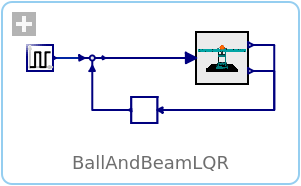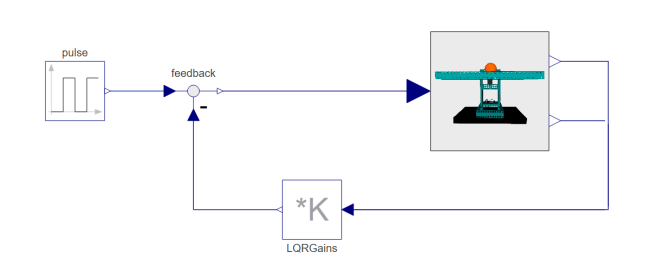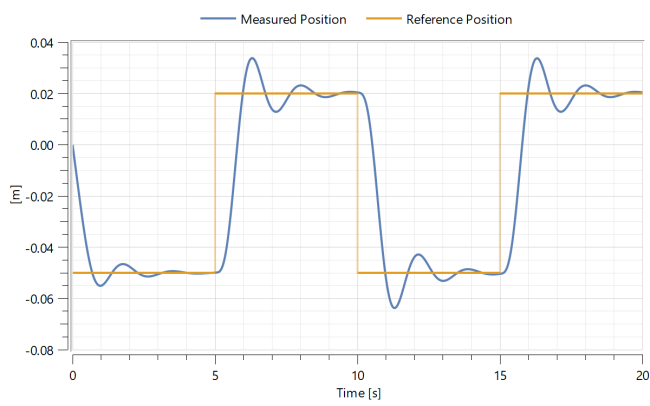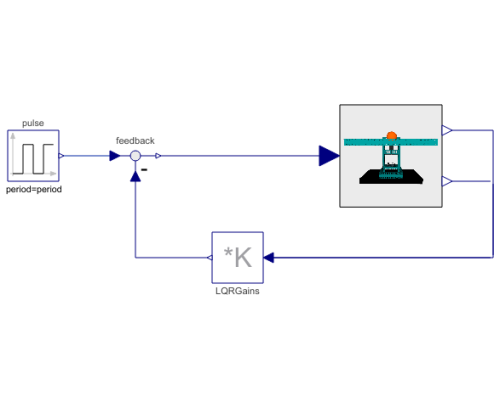WOLFRAM SYSTEM MODELER
BallAndBeamLQRModel of a ball and beam setup controlled by a linear quadratic regulator |
|
Diagram
Wolfram Language

SystemModel["EducationExamples.Physics.BallAndBeam.BallAndBeamLQR"]

Information
This model studies a ball rolling on top of a beam. The ball translational acceleration will be dependent on how the beam is angled. This example studies two different control schemes, the PID regulator and the LQ regulator, which can be used to control the position of the ball along the beam, using the beam angle as input.
Dynamics
This model is different from the main model in that it uses a linear-quadratic regulator to control the ball position along the beam, instead of a PID controller, as in the example model. The gains for the controller have been calculated using the accompanying Wolfram Language notebook.

Simulation
Simulate the model by clicking the Simulate button:
Plot the results
Explore how the actual ball position differs from the reference ball position. Do this by plotting the variables x and y. The first variable describes the reference position and the latter describes the measured position. This plot will be displayed immediately upon simulation.
You should now see the following plot:

Visualize
Multibody systems have automatic visualizers to show what a real-world system would look like.
In this example, custom CAD models have been loaded to better represent the system. To see a 3D representation of the system, follow the steps below:
Click the Animation button:
Use your mouse or trackpad to drag the animation to a good angle and zoom in with your scroll wheel or by using the trackpad. Then click the Play button:

In order to get the full experience of this example, you need a desktop Wolfram Language product. A free trial download is available at www.wolfram.com/mathematica/trial/
For the full example, open the accompanying notebook BallAndBeam.nb.
Parameters (4)
| amplitude |
Value: 0.07 Type: Length (m) Description: Amplitude of the reference pulse |
|---|---|
| offset |
Value: -0.05 Type: Length (m) Description: Offset of the reference pulse |
| period |
Value: 10 Type: Time (s) Description: Period of the reference pulse |
| K |
Value: {{1., 0.582915}} Type: Real[:,:] Description: Gain matrix which is multiplied with the input (LQRGains.K) |
Connectors (4)
| x |
Type: RealOutput Description: Ball position along the beam |
|
|---|---|---|
| v |
Type: RealOutput Description: Ball velocity along the beam |
|
| y |
Type: RealOutput Description: Reference signal |
|
| u |
Type: RealOutput Description: Input variable for the servo |
Components (4)
| ballAndBeam |
Type: BallAndBeamModel Description: Ball, beam and base assembly |
|
|---|---|---|
| feedback |
Type: Feedback Description: Output difference between commanded and feedback input |
|
| pulse |
Type: Pulse Description: Generate pulse signal of type Real |
|
| LQRGains |
Type: MatrixGain Description: Output the product of a gain matrix with the input signal vector |

